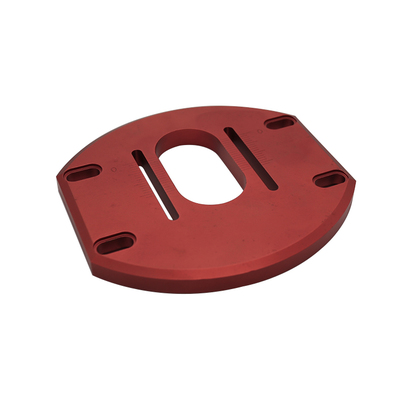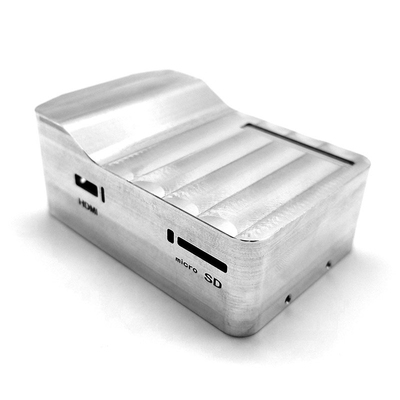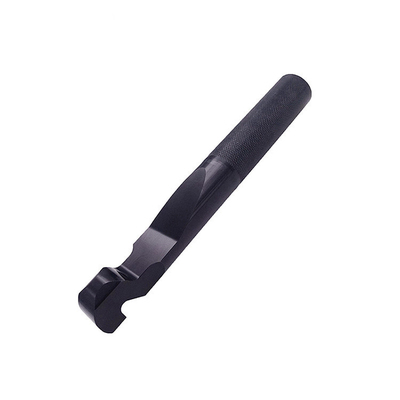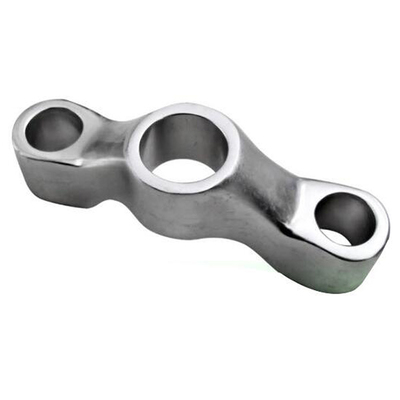The development and opportunities of sheet metal forming technology
With the development of new materials and technologies for sheet metal forming, the industry needs to challenge the status quo. With the reduction of skilled labor, we need to learn as much new technology as possible, share information with each other; and develop innovative and encouraging workplaces that support new talents.
The use of aluminum is increasing, and the third generation of advanced high-strength steel (AHSS) presents new challenges and capabilities. The servo press allows us to manage the forming energy in a way that the flywheel clutch mechanical press cannot control. The Internet of Things is expected to help us understand our operations in unprecedented ways.
We have wonderful opportunities, but with them comes risks. However, our biggest risk is to accept the status quo and fall into mediocrity.
We need bold leaders, experienced professionals and curious novices to share experiences and challenge old traditions. Usually, we need to develop an understanding of materials and technology, not only to understand how things happen, but also to know why.
Where do we start?
Prioritize continuous learning
Each of us must make a commitment to learn and support our employees and our own development. We need to start from the material and technical foundations, and continue to learn from then on. We must understand why the material behaves like this in the printing press. In this way, we can open up opportunities to explore the formation of new materials.
The recently introduced steels, especially the third-generation AHSS, have changed the nature of the historical trade-off between strength and elongation. The increase in material strength has changed the requirements and dynamics of forming and lubrication.

The figure shows automotive steel used in 1990 and today. The curve of steel in 1990 shows a clear curve, and the tensile strength is concentrated below 1100 MPa. As Danny Schaeffler observed and suggested, today's automobile steel drawings look more like football drawings, and the material strength is significantly improved.
Newer steel grades can also provide higher formability at a given tensile strength, which changes the requirements for successful forming and challenges our connection capabilities. These new opportunities require new knowledge and a commitment to experimentation and learning.
Support your supply chain
We must share knowledge throughout the supply chain. Sheet metal forming is done by a large number of small and medium-sized companies and a few large companies. It has been observed that most of our knowledge comes from large multinational companies, and the advancement of materials, processes and technologies often cannot flow to smaller suppliers because people hardly know the efforts to share it. In fact, in the automotive industry, customers often encounter obstacles in sharing information.
This is a naive and dangerous way of trading. It serves the supply chain to share knowledge. Efficient production will result in higher quality parts, shorter production cycles, reduced waste, lower consumables costs, and better communication and coordination between partners. For suppliers with low margins, this kind of knowledge sharing helps support their company's healthy supply chain.
Dare to challenge conventional wisdom
We can no longer accept tradition and rules of thumb in forming operations. The introduction of hundreds of new material grades has forced us to regard sheet metal forming as a science, not an art. The improvement of part specification accuracy and the change of sheet metal performance require compliance with material and forming tolerances.
Our past low-carbon steel tradition no longer considers using stronger materials to control heat and friction, control rebound and prevent cracking and wrinkling. We need new rules based on real estate measurement, statistical observation and experience.
Create a challenging and supportive work environment
Attracting young employees and new ideas in the manufacturing industry is still a problem. As the workforce ages, our inability to attract young workers soon will threaten our capabilities.
Motivated young employees want a clear understanding of their career opportunities. They want to challenge their work and respect their own efforts. They also need a workplace that encourages learning and collaboration. We need to acknowledge our past unproductive ways and promote our inner change.
We work in a dynamic and challenging industry. Sheet metal forming is vital to our manufacturing economy. It's time for us to start working together to support our supply chain, attract new talent and allow tiered suppliers to pursue evolving materials and technologies.
Link to this article: The development and opportunities of sheet metal forming technology
Reprint Statement: If there are no special instructions, all articles on this site are original. Please indicate the source for reprinting:https://www.cncmachiningptj.com/,thanks!
 3, 4 and 5-axis precision CNC machining services for aluminum machining, beryllium, carbon steel, magnesium, titanium machining, Inconel, platinum, superalloy, acetal, polycarbonate, fiberglass, graphite and wood. Capable of machining parts up to 98 in. turning dia. and +/-0.001 in. straightness tolerance. Processes include milling, turning, drilling, boring, threading, tapping, forming, knurling, counterboring, countersinking, reaming and laser cutting. Secondary services such as assembly, centerless grinding, heat treating, plating and welding. Prototype and low to high volume production offered with maximum 50,000 units. Suitable for fluid power, pneumatics, hydraulics and valve applications. Serves the aerospace, aircraft, military, medical and defense industries.PTJ will strategize with you to provide the most cost-effective services to help you reach your target,Welcome to Contact us ( sales@pintejin.com ) directly for your new project.
3, 4 and 5-axis precision CNC machining services for aluminum machining, beryllium, carbon steel, magnesium, titanium machining, Inconel, platinum, superalloy, acetal, polycarbonate, fiberglass, graphite and wood. Capable of machining parts up to 98 in. turning dia. and +/-0.001 in. straightness tolerance. Processes include milling, turning, drilling, boring, threading, tapping, forming, knurling, counterboring, countersinking, reaming and laser cutting. Secondary services such as assembly, centerless grinding, heat treating, plating and welding. Prototype and low to high volume production offered with maximum 50,000 units. Suitable for fluid power, pneumatics, hydraulics and valve applications. Serves the aerospace, aircraft, military, medical and defense industries.PTJ will strategize with you to provide the most cost-effective services to help you reach your target,Welcome to Contact us ( sales@pintejin.com ) directly for your new project.
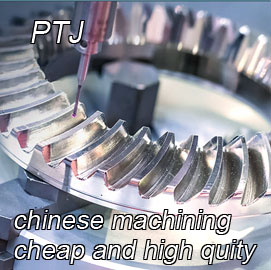
- 5 Axis Machining
- Cnc Milling
- Cnc Turning
- Machining Industries
- Machining Process
- Surface Treatment
- Metal Machining
- Plastic Machining
- Powder Metallurgy Mold
- Die Casting
- Parts Gallery
- Auto Metal Parts
- Machinery Parts
- LED Heatsink
- Building Parts
- Mobile Parts
- Medical Parts
- Electronic Parts
- Tailored Machining
- Bicycle Parts
- Aluminum Machining
- Titanium Machining
- Stainless Steel Machining
- Copper Machining
- Brass Machining
- Super Alloy Machining
- Peek Machining
- UHMW Machining
- Unilate Machining
- PA6 Machining
- PPS Machining
- Teflon Machining
- Inconel Machining
- Tool Steel Machining
- More Material

